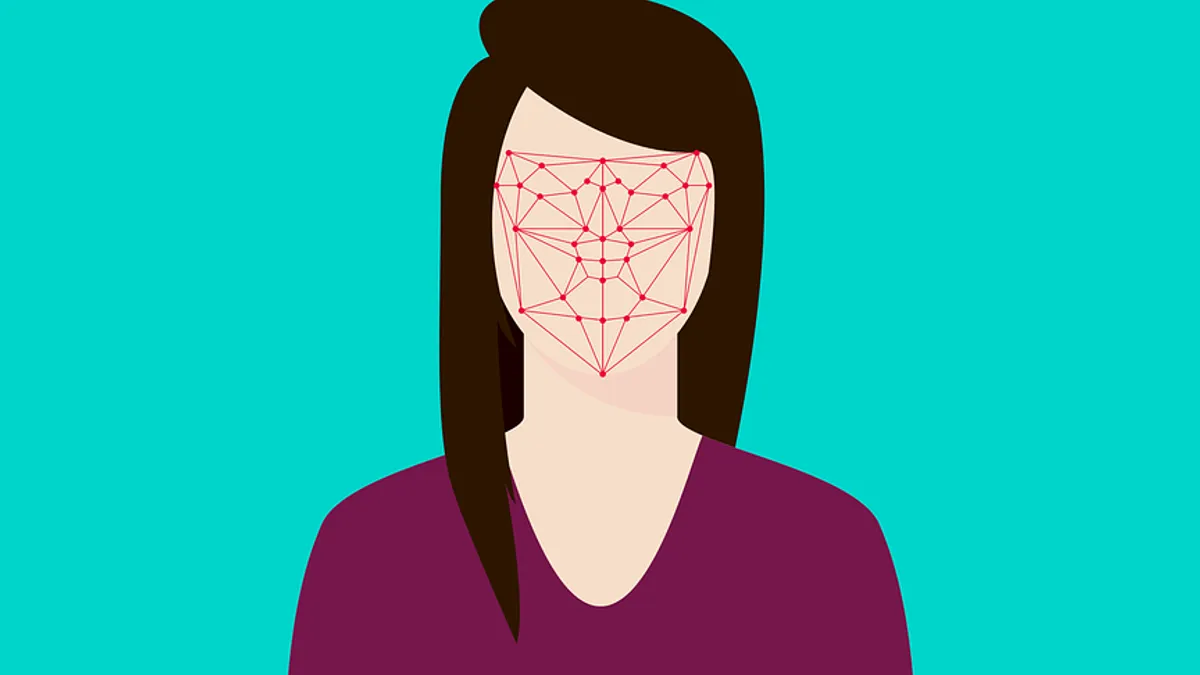Dive Brief:
- Amazon and Microsoft announced on Wednesday and Thursday, respectively, moratoria on police use of their facial recognition technology, amid a call for federal regulation of the controversial technology. Amazon's moratorium is for one year, while Microsoft said its moratorium is indefinite until laws are in place.
- In a short statement, Amazon said it would continue to make Rekognition available to groups like Thorn, the International Center for Missing and Exploited Children and Marinus Analytics to help the victims of human trafficking and reunite missing children with their families. Microsoft President Brad Smith said any national law should be "grounded in human rights."
- The announcements came on the heels of IBM CEO Arvind Krishna sending a letter to Congress earlier this week announcing the company would no longer offer general purpose facial recognition technology or analysis software. Krishna also called for a "national dialogue" on how the technology should be employed by law enforcement.
Dive Insight:
These major tech companies' announcements on the use and sale of facial recognition technology come amid a broader conversation around law enforcement in light of the Minneapolis police's killing of George Floyd and the protests against systemic racism it sparked in cities nationwide.
Facial recognition technology and its use by law enforcement has been controversial for some time and has sparked several local bans as leaders try to regulate its use. The European Union considered a ban on facial recognition technology in its member states, while San Francisco and Oakland, CA have passed bans on the technology. San Francisco went on to amend its ban to allow city employees to use certain devices that have the tech built in, such as Apple products that use facial recognition as an unlocking feature.
Meanwhile, Orlando, FL piloted the use of Rekognition with its police department, but ended the trial after 15 months due to funding concerns, as well as criticism that it did not work as intended.
Those bans came amid concerns of bias in facial recognition technology and worries that it unfairly targets people of color. A federal study from the National Institute of Standards and Technology (NIST) late last year found that Asian and African American faces were misidentified up to 100 times more frequently than white faces in some algorithms when conducting one-to-one matching. But a poll from the Center for Data Innovation in early 2019 found that only 26% of Americans wanted the government to "strictly limit" the technology.
In his letter to Congress, Krishna said facial recognition and artificial intelligence (AI) technology must be rigorously tested for bias and those tests must be audited and reported.
"IBM firmly opposes and will not condone uses of any technology, including facial recognition technology offered by other vendors, for mass surveillance, racial profiling, violations of basic human rights and freedoms, or any purpose which is not consistent with our values and Principles of Trust and Transparency," Krishna wrote.
Questions of national regulations of facial recognition technology have swirled for some time, with various lawmakers on the House Oversight Committee declaring across party lines at a hearing last year that the technology is "not ready for primetime."
Opponents of facial recognition technology derided the companies' decisions to place moratoria on selling to police departments until there are national standards. In a statement, Fight for the Future said the moratoria are a "public relations stunt," albeit one that comes as facial recognition technology is "increasingly politically toxic."
"Amazon and Microsoft know that facial recognition software is dangerous," Deputy Director Evan Greer said in a statement. "They know it's the perfect tool for tyranny. They know it's racist — and that in the hands of police it will simply exacerbate systemic discrimination in our criminal justice system."
But Fight for the Future criticized Amazon for saying it would "stand ready to help if requested" as Congress drafts and implements what it termed "appropriate rules" on facial recognition technology. Greer warned that if Amazon, Microsoft and others get to help write any national legislation, their main priority will not be safety but instead making sure it is "friendly to their surveillance capitalist business model."












